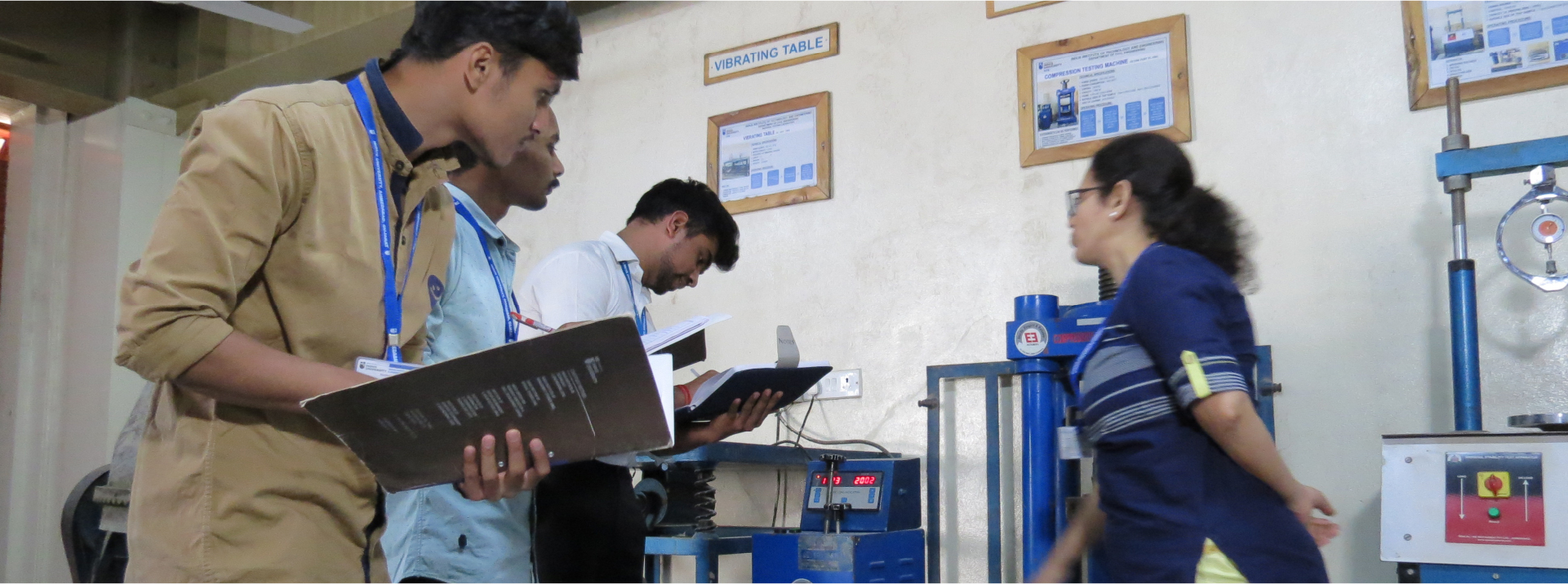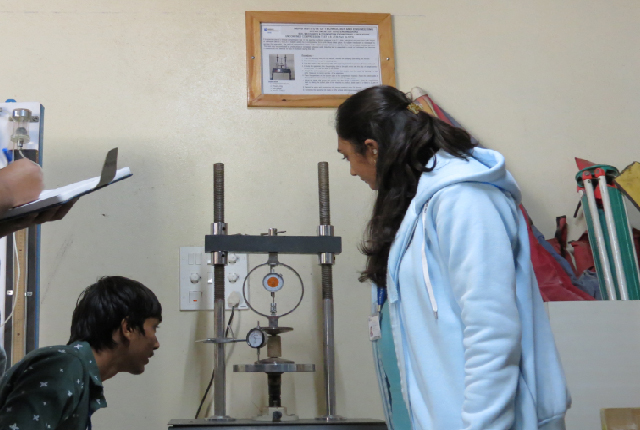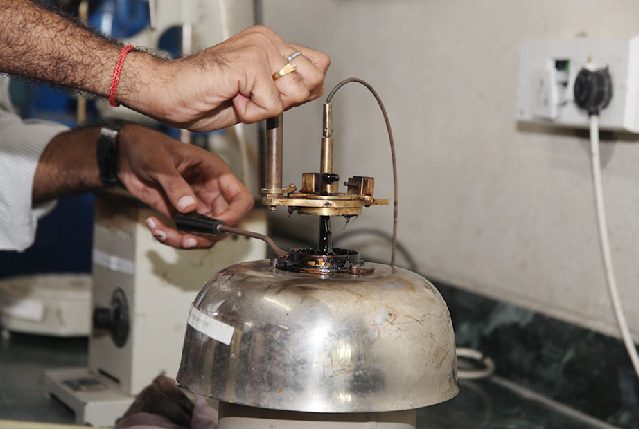Announcement
Get Ready for INDUS CUP 2K26! | Dates: 5–10 January 2026 | Stand a Chance to Win Cash Prizes up to ₹10,00,000!...Read more Get Ready for INDUS CUP 2K26! | Dates: 5–10 January 2026 | Stand a Chance to Win Cash Prizes up to ₹10,00,000!
We are excited to announce the Indus Hackathon 2025, an exhilarating one-day event organized by the CSE Department of Indus University....Read more We are excited to announce the Indus Hackathon 2025, an exhilarating one-day event organized by the CSE Department of Indus University.
26th ISTE Faculty Annual State Convention will be held at Indus University on April 27, 2023....Read more 26th ISTE Faculty Annual State Convention will be held at Indus University on April 27, 2023.
Get Ready for INDUS CUP 2K26! | Dates: 5–10 January 2026 | Stand a Chance to Win Cash Prizes up to ₹10,00,000!...Read more Get Ready for INDUS CUP 2K26! | Dates: 5–10 January 2026 | Stand a Chance to Win Cash Prizes up to ₹10,00,000!
We are excited to announce the Indus Hackathon 2025, an exhilarating one-day event organized by the CSE Department of Indus University....Read more We are excited to announce the Indus Hackathon 2025, an exhilarating one-day event organized by the CSE Department of Indus University.
26th ISTE Faculty Annual State Convention will be held at Indus University on April 27, 2023....Read more 26th ISTE Faculty Annual State Convention will be held at Indus University on April 27, 2023.

The Civil Engineering department at Indus University is dedicated to impacting society by enabling students to build developed communities. The effective teaching-learning and research approach and an interactive study environment equip students with practical knowledge, skills and experience.
Indus engineering program that crystallizes concepts from basic science to technology through laboratory practices and projects to gain knowledge in civil, environmental, highway engineering and construction management in sync with industry expectations.
The Department’s elaborate infrastructure, including the cutting-edge lab, has all the tools to support the teaching-learning approach. From theoretical knowledge to real-world experience and hands-on skills, students have access to everything they need to build a pioneering career.
The Department offers a Diploma in Civil Engineering, B.Tech in Civil Engineering, M.Tech in Construction Project Management, M.Tech in Structural Engineering and a Doctoral program.
Admission Committee for Professional Courses (ACPC) will admit students based on merit on 50% of the sanctioned strength for each course. The student needs to register himself with ACPC after the result.
50% seats of the sanctioned strength of each course are Management Quota, admission of which is handled by the institute as per guidelines of ACPC.
Minimum Aggregate 45% in Physics, Chemistry & Mathematics, Theory exam in H.S.C. of any boards.
Course Duration
4 Years (8 Semesters)
Engineering proficiency: Apply the knowledge of mathematics, science, engineering fundamentals and an engineering specialization to solve complex engineering issues.
Analysis: Formulate, Identity, review research writings, and analyze complex engineering issues reaching verified findings using first principles of mathematics, natural sciences, and engineering.
Design & development solutions: Design solutions for complicated engineering problems and design system elements or methods that meet the identified needs, considering safety issues and cultural and environmental concerns properly.
Sustainability and Environment: Understand the effect of professional engineering solutions in societal and environmental contexts and exemplify the understanding of and need for endurable development.
Individual and teamwork: Function effectively as an individual and as a member or leader in diverse teams and multidisciplinary settings.
Communication: Communicate on complicated engineering exercises with the engineering community and society at extensive, such as understanding and documenting effective reports and design documentation to make effective presentations and receive clear instructions.
Project management: Display details and understanding of the engineering and management principles and apply these to one's own assignment as a member and leader in a team to work projects and in multidisciplinary backgrounds.
The Engineering Geology Laboratory helps in determining the engineering behavior of geomaterials (soils and rocks). There are various physical, chemical and geotechnical properties defined in the Laboratory that are needed for identifying the geo-materials. It helps in predicting the behavior of Earth systems and the universe, finding adequate supplies of natural resources, such as ground water, petroleum, and metals and conserving soils and maintaining agricultural productivity. In addition, geotechnical engineers use this knowledge for designing the type of foundations, earthworks such as dams, embankments, tunnels, reservoirs, pavement subgrades, and specialized applications like waste containment systems.
The Bitumen Testing Laboratory in the Civil Engineering department is well equipped with the instruments to test the various properties of bitumen like ductility value, penetration value, softening point, flash & fire point.
The Surveying Laboratory is equipped with the instruments and tools that students use throughout the surveying course. Students learn techniques for gathering field data with both traditional and modern instruments and demonstrate their proficiency on weekly lab exercises and final exams. Each lab group – typically three students – has a dedicated set of instruments to use, including auto level, theodolite, and total station. Each group also has level rods, tripods, tape measures, chaining pins, and other common surveying tools and ancillary equipment. This lab serves as an excellent space for the students to have direct access to help for topics discussed in lecture and lab.
The material testing laboratory is designed to develop new and innovative construction materials indigenously. The laboratory has also been involved in testing of special structures and retrofitted structures. The laboratory is equipped to evaluate physical and mechanical properties of construction materials such as fresh and hardened concrete, Cement, Aggregates, Bricks, A.A.C. Blocks etc. It is involved in the research facilities for special concrete such as geopolymer concrete, self healing concrete, self compacting concrete, high performance concrete, marine concrete etc. The laboratory also provides the platform for consultancy assignments and testing related to different materials.
The Environmental Engineering laboratory practical provides good insight into different experimental methods relevant to Environmental Engineering. The Environmental Engineering Laboratory in the Department of Civil Engineering provides good testing, teaching and research facilities. The laboratory contains modern analytical instruments and facilities to carry out simple to sophisticated experiments i.e. the testing of Physico-chemical and Biological parameters for Water and Wastewater, etc. The Laboratory has sophisticated equipment to analyze pollution parameters in water and waste water, soil and air. Experiments on testing the Quality of water such as pH,Turbidity, Conductivity meter, Hardness, Chlorides, Sulphate Alkalinity etc can be performed in the lab. Experiments on noise pollution measurement are also performed in this lab Experiments on waste water also performed in this lab in order to recover the condition of wastewater to reuse it for various purposes such as gardening, and for agricultural purposes.
The laboratory is useful for carrying practical related to properties of soil and subsurface investigation which is of utmost importance in laying the foundation of various Civil Engineering structures and also is equipped to perform all the necessary essential characterization of soils, rocks, and several advanced testing facilities. The vision is to utilize state-of-the-art knowledge for solving problems related to the subsurface which includes Soil mechanics and Applied soil mechanics.
Earthquake engineering laboratory incorporates demonstration of major seismic testing methodologies and engages in basics and applied researches that resolve critical seismic engineering problems. The vision of the laboratory is to build interdisciplinary knowledge and expertise to develop innovative strategies for increasing the safety and reliability of Civil Engineering structures which are subjected to earthquake loading. The laboratory mainly focuses on structural dynamics, evaluation of seismic performance of Civil Engineering structures, earthquake resistant design strategies and vibration assessment of structures. With state-of-the-art testing equipment, computing and data acquisition facilities, the lab is equipped to conduct pseudo-static to dynamic scale model testing.
Most of the actual problems in the Civil Engineering and allied fields are generally the simultaneous combinations of multiple physical phenomena, which are called multi-physics problems. To deal with such problems, the Department is equipped with a computational laboratory that has a total capacity of around 60 seats and systems updated with Modelling software like AutoCAD, Staad Pro V8i, Revit Architecture, Etabs, SAFE, SAP, CSI Bridge and project management software such as MS Projects, Primavera and other related supporting software.
Diploma in Civil Engineering program at Indus University provides, in depth education on the basics and practical applications of engineering. These courses emphasize areas such as designing structures, constructing infrastructure and project management. Students gain the knowledge and skills required to excel in the industry. With the increasing number of infrastructure projects there is a growing demand for engineers. The curriculum of civil engineering diploma courses includes topics like analysis, transportation engineering, environmental engineering and surveying. Hands-on training and internships are integrated into the program to prepare students for their roles in the field.
Ranked as one of the best civil engineering colleges in India, our department features facilities designed to meet the needs of aspiring engineers. Our advanced laboratory resources emphasize hands-on learning. From acquiring knowledge to refining abilities, our civil engineering diploma program provides students with the necessary skills to thrive in their careers. Whether engaging in experiments, participating in real world projects or collaborating with industry experts our students have all they need to pursue innovation and achieve success, in the field of engineering.
The crucial job of bridging the gap between academia and industry is performed by a distinct team at Indus University's Training & Placement Department (T & P Dept.). It shows how there is a connection between various academic and commercial organisations. The Training & Placement Department serves as the main resource for students in all programmes and streams who are continuing their education at the university (T & P Dept.). By helping them select and pursue their chosen vocations, it gives them a wide range of employment alternatives.
Admission Committee for Professional Courses (ACPC) will admit students based on merit on 50% of the sanctioned strength for each course. The student needs to register himself with ACPC after the result.
50% seats of the sanctioned strength of each course are Management Quota, admission of which is handled by the institute as per guidelines of ACPC.
Minimum Aggregate 45% in Physics, Chemistry & Mathematics, Theory exam in H.S.C. of any boards.
Course Duration
4 Years (8 Semesters)
Engineering proficiency: Apply the knowledge of mathematics, science, engineering fundamentals and an engineering specialization to solve complex engineering issues.
Analysis: Formulate, Identity, review research writings, and analyze complex engineering issues reaching verified findings using first principles of mathematics, natural sciences, and engineering.
Design & development solutions: Design solutions for complicated engineering problems and design system elements or methods that meet the identified needs, considering safety issues and cultural and environmental concerns properly.
Sustainability and Environment: Understand the effect of professional engineering solutions in societal and environmental contexts and exemplify the understanding of and need for endurable development.
Individual and teamwork: Function effectively as an individual and as a member or leader in diverse teams and multidisciplinary settings.
Communication: Communicate on complicated engineering exercises with the engineering community and society at extensive, such as understanding and documenting effective reports and design documentation to make effective presentations and receive clear instructions.
Project management: Display details and understanding of the engineering and management principles and apply these to one's own assignment as a member and leader in a team to work projects and in multidisciplinary backgrounds.
The Engineering Geology Laboratory helps in determining the engineering behavior of geomaterials (soils and rocks). There are various physical, chemical and geotechnical properties defined in the Laboratory that are needed for identifying the geo-materials. It helps in predicting the behavior of Earth systems and the universe, finding adequate supplies of natural resources, such as ground water, petroleum, and metals and conserving soils and maintaining agricultural productivity. In addition, geotechnical engineers use this knowledge for designing the type of foundations, earthworks such as dams, embankments, tunnels, reservoirs, pavement subgrades, and specialized applications like waste containment systems.
The Bitumen Testing Laboratory in the Civil Engineering department is well equipped with the instruments to test the various properties of bitumen like ductility value, penetration value, softening point, flash & fire point.
The Surveying Laboratory is equipped with the instruments and tools that students use throughout the surveying course. Students learn techniques for gathering field data with both traditional and modern instruments and demonstrate their proficiency on weekly lab exercises and final exams. Each lab group – typically three students – has a dedicated set of instruments to use, including auto level, theodolite, and total station. Each group also has level rods, tripods, tape measures, chaining pins, and other common surveying tools and ancillary equipment. This lab serves as an excellent space for the students to have direct access to help for topics discussed in lecture and lab.
The material testing laboratory is designed to develop new and innovative construction materials indigenously. The laboratory has also been involved in testing of special structures and retrofitted structures. The laboratory is equipped to evaluate physical and mechanical properties of construction materials such as fresh and hardened concrete, Cement, Aggregates, Bricks, A.A.C. Blocks etc. It is involved in the research facilities for special concrete such as geopolymer concrete, self healing concrete, self compacting concrete, high performance concrete, marine concrete etc. The laboratory also provides the platform for consultancy assignments and testing related to different materials.
The Environmental Engineering laboratory practical provides good insight into different experimental methods relevant to Environmental Engineering. The Environmental Engineering Laboratory in the Department of Civil Engineering provides good testing, teaching and research facilities. The laboratory contains modern analytical instruments and facilities to carry out simple to sophisticated experiments i.e. the testing of Physico-chemical and Biological parameters for Water and Wastewater, etc. The Laboratory has sophisticated equipment to analyze pollution parameters in water and waste water, soil and air. Experiments on testing the Quality of water such as pH,Turbidity, Conductivity meter, Hardness, Chlorides, Sulphate Alkalinity etc can be performed in the lab. Experiments on noise pollution measurement are also performed in this lab Experiments on waste water also performed in this lab in order to recover the condition of wastewater to reuse it for various purposes such as gardening, and for agricultural purposes.
The laboratory is useful for carrying practical related to properties of soil and subsurface investigation which is of utmost importance in laying the foundation of various Civil Engineering structures and also is equipped to perform all the necessary essential characterization of soils, rocks, and several advanced testing facilities. The vision is to utilize state-of-the-art knowledge for solving problems related to the subsurface which includes Soil mechanics and Applied soil mechanics.
Earthquake engineering laboratory incorporates demonstration of major seismic testing methodologies and engages in basics and applied researches that resolve critical seismic engineering problems. The vision of the laboratory is to build interdisciplinary knowledge and expertise to develop innovative strategies for increasing the safety and reliability of Civil Engineering structures which are subjected to earthquake loading. The laboratory mainly focuses on structural dynamics, evaluation of seismic performance of Civil Engineering structures, earthquake resistant design strategies and vibration assessment of structures. With state-of-the-art testing equipment, computing and data acquisition facilities, the lab is equipped to conduct pseudo-static to dynamic scale model testing.
Most of the actual problems in the Civil Engineering and allied fields are generally the simultaneous combinations of multiple physical phenomena, which are called multi-physics problems. To deal with such problems, the Department is equipped with a computational laboratory that has a total capacity of around 60 seats and systems updated with Modelling software like AutoCAD, Staad Pro V8i, Revit Architecture, Etabs, SAFE, SAP, CSI Bridge and project management software such as MS Projects, Primavera and other related supporting software.
Diploma in Civil Engineering program at Indus University provides, in depth education on the basics and practical applications of engineering. These courses emphasize areas such as designing structures, constructing infrastructure and project management. Students gain the knowledge and skills required to excel in the industry. With the increasing number of infrastructure projects there is a growing demand for engineers. The curriculum of civil engineering diploma courses includes topics like analysis, transportation engineering, environmental engineering and surveying. Hands-on training and internships are integrated into the program to prepare students for their roles in the field.
Ranked as one of the best civil engineering colleges in India, our department features facilities designed to meet the needs of aspiring engineers. Our advanced laboratory resources emphasize hands-on learning. From acquiring knowledge to refining abilities, our civil engineering diploma program provides students with the necessary skills to thrive in their careers. Whether engaging in experiments, participating in real world projects or collaborating with industry experts our students have all they need to pursue innovation and achieve success, in the field of engineering.
The crucial job of bridging the gap between academia and industry is performed by a distinct team at Indus University's Training & Placement Department (T & P Dept.). It shows how there is a connection between various academic and commercial organisations. The Training & Placement Department serves as the main resource for students in all programmes and streams who are continuing their education at the university (T & P Dept.). By helping them select and pursue their chosen vocations, it gives them a wide range of employment alternatives.

An imaginative educational plan of this program will empower understudies..

An imaginative educational plan of this program will empower understudies..